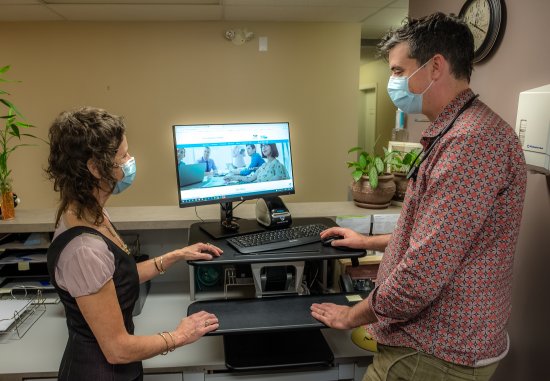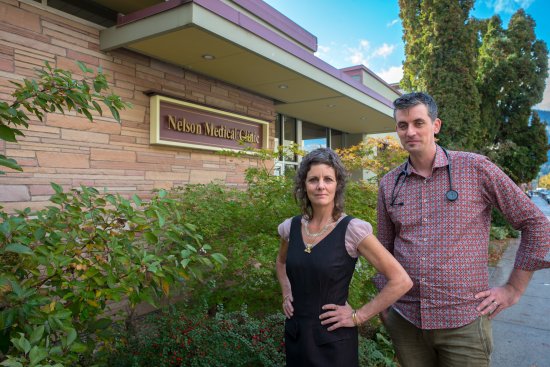Nelson family physician Dr Lee MacKay found immediate benefit to his patients after medical office assistant Julie Northfold completed the GPSC Panel Management for Family Practice program.
Putting newly acquired skills to work, Julie evaluated the office electronic medical record (EMR) data and helped to identify Dr MacKay’s patients who were eligible for colon cancer screening.
“I was surprised to find only 20% of my patients were regularly getting tested,” says Dr MacKay.
A simple letter from the medical office resulted in all eligible patients now enrolled in colon cancer screening.
“The initial investment is a bit large,” notes Julie, “but the payoff can be extraordinary, in terms of survival rates for patients with proper screenings and alleviating workload from the family practitioner and support staff.”
Panel management is a process that allows for the practice teams to clean up, optimize and use EMR data to create an accurate list of active patients. They create registries for patients with specific chronic and preventative care needs, such as diabetes, cancers and high blood pressure. As a result, patients with specific conditions are proactively screened and supported with care goals according to best practice guidelines.

(Photographed above: Julie Northfold with Dr. Lee MacKay)
Medical office staff are essential to facilitate this work, which is why this training is so important and proven to be such a success. As patient medical homes continue to expand across BC to facilitate participation in primary care networks, family practice teams are expanding their skills to provide quality, longitudinal care for their patients.
“It really helps to have an MOA who is skilled at evaluating EMR data,” says Dr MacKay. “For example, we are looking on how we can connect the data, metrics and evaluation to screen social determinants of health, and when appropriate connect vulnerable patients with our social workers.”
The training is offered through the University of Fraser Valley (UFV) twice a year, and GPSC pays for participants to attend.
“What a wonderful opportunity,” says Julie, “as an MOA professional development course and a way to improve patient outcomes, at the same time.”
Practical, skills-based training is designed to meet the competencies to support panel management including the basics of the patient medical home and primary care networks, empanelment, registry-based care, proactive and preventative care and quality improvement.
Several other participants in the pilot group are also noting its benefits.
“It’s great to actually have something on paper that says I can do the job,” says Melissa Carleton from Qualicum Medical. “And I can take what I learned and bring it to everyone in the practice. Because I’m the only one who took the training – I’m positioned to help everyone else get there too.”
“The course gave us a lot of information on proactive care,” says Frances Rutherford from Atwood Medical Clinic in Williams Lake. “When you have a clean panel, you create an environment where you can provide proactive care so patients aren't the only ones taking care of themselves.”
Dr MacKay encourages colleagues to have their medical office staff participate. “We have to make sure each member of our team is able to work to the full scope of their abilities so that collectively we deliver the best proactive care to our patients,” he says. “We’re one of the first practices to be part of the primary care network in our community, with two social workers, a physiotherapist and a nurse practitioner all hired and funded primarily through the primary care network. Julie’s work allows us to use one of the key building blocks needed to make our patient medical home and primary care network successful.”
Look for information about upcoming cohorts here.

(Photographed above: Julie Northfold with Dr. Lee MacKay)
